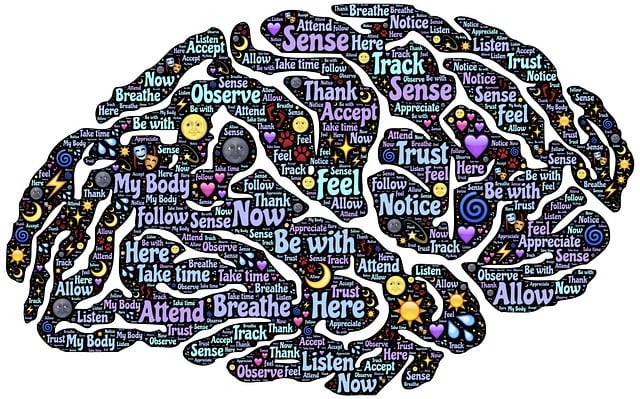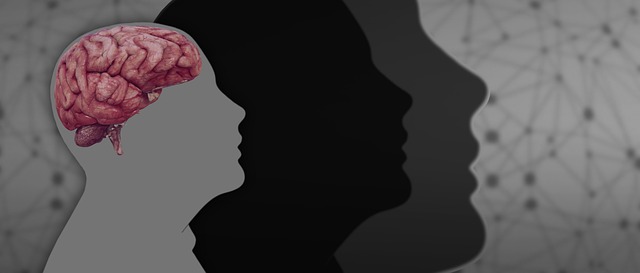Emotional Intelligence (EQ) is a powerful tool for navigating social interactions and improving mental health, especially beneficial for those seeking support through Littleton Psychosis Therapy. By developing EQ, individuals gain self-awareness, learn to manage their emotions, and enhance relationships through better communication and empathy. This process includes active listening, which fosters trust and understanding, particularly in trauma support services. Littleton Psychosis Therapy offers tailored coping skill development, a Mental Wellness Podcast Series, and Trauma Support Services to cultivate EQ, improve decision-making, and promote overall well-being in both personal and professional settings.
Emotional intelligence (EQ) is a powerful tool for personal growth and successful relationships. In this comprehensive guide, we explore the fundamentals of EQ development, focusing on strategies to enhance self-awareness, empathy, emotional regulation, and active listening—essential components of effective communication. By understanding and cultivating these skills, individuals can navigate social interactions with greater confidence, build stronger connections, and foster healthier mental well-being, as supported by Littleton Psychosis Therapy.
- Understanding Emotional Intelligence: The Basics
- The Role of Self-Awareness in Building EQ
- Developing Empathy: Connecting with Others
- Managing and Regulating Emotions Effectively
- Practicing Active Listening for Better Communication
Understanding Emotional Intelligence: The Basics

Emotional intelligence (EQ) is a fundamental aspect of human interaction and well-being. At its core, EQ involves recognizing, understanding, and managing one’s own emotions, as well as empathizing with and responding appropriately to the feelings of others. This dynamic skill set isn’t just about being sensitive; it’s about effectively navigating social situations and building meaningful connections. For individuals dealing with issues like Littleton Psychosis Therapy, developing emotional intelligence can be a game-changer. It provides tools to decipher complex emotions, reduce stress, and improve communication, fostering a sense of calm and control.
The concept encompasses various competencies, including self-awareness, self-management, social awareness, and relationship management. Enhancing these areas leads to better decision-making, stronger relationships, and improved overall mental health. For instance, a Community Outreach Program Implementation focused on EQ can empower individuals to address challenges with enhanced Self-Esteem Improvement and Inner Strength Development, enabling them to navigate life’s complexities with resilience and emotional agility.
The Role of Self-Awareness in Building EQ

Emotional intelligence (EQ) is a vital component of mental wellness, and self-awareness plays a crucial role in its development. According to Littleton Psychosis Therapy, self-awareness involves recognizing and understanding one’s emotions, strengths, weaknesses, and values. It’s about being attuned to your internal world, which forms the foundation for effective communication and empathetic interactions with others.
By cultivating self-awareness, individuals can better manage their emotional responses to different situations, leading to improved stress reduction methods. This is particularly beneficial in navigating challenging circumstances or trauma support services, where emotional regulation is essential. Self-aware individuals are often more capable of recognizing when they’re under distress, enabling them to employ healthy coping strategies and maintain a balanced mental state.
Developing Empathy: Connecting with Others

Developing empathy is a crucial aspect of emotional intelligence building, fostering deeper connections with others. This skill allows us to step into someone else’s shoes, understand their feelings, and respond sensitively. At Littleton Psychosis Therapy, we emphasize the importance of active listening and open communication to cultivate empathy. By creating safe spaces for individuals to share their experiences, we enhance public awareness campaigns that promote mental health, ultimately reducing stigma associated with conditions like anxiety relief.
Mind Over Matter principles play a significant role in this process. When we genuinely listen to others and strive to see things from their perspective, it fosters an environment of trust and understanding. This connection is vital for building strong relationships, resolving conflicts, and promoting empathy-driven actions. Through these efforts, we contribute to the development of a more compassionate society where individuals support one another, reflecting the mind’s incredible power over matter.
Managing and Regulating Emotions Effectively

Emotional intelligence involves recognizing and managing our own emotions effectively, as well as understanding and responding to the emotions of others. This skill set is crucial for maintaining mental wellness and fostering strong interpersonal relationships. Through Littleton Psychosis Therapy, individuals can learn coping skills development techniques tailored to their unique needs. The Mental Wellness Podcast Series Production offers valuable insights into navigating emotional challenges, while Trauma Support Services provide specialized care for those who have experienced traumatic events. By integrating these resources, one can enhance emotional regulation, enabling better decision-making and improved communication in both personal and professional spheres.
Practicing Active Listening for Better Communication

In the realm of Littleton psychosis therapy and emotional healing processes, active listening stands out as a game-changer. This simple yet powerful technique involves fully concentrating on what someone is saying, both verbally and nonverbally, to understand their perspective and emotions. It’s not just about hearing words; it’s about comprehending the underlying messages and feelings. Practicing active listening fosters deeper connections, enhances empathy, and strengthens communication bonds, which are all crucial aspects of effective therapy sessions.
For healthcare providers, incorporating compassion cultivation practices into their professional toolkit can significantly boost cultural competency training. By actively listening, therapists create a safe space for clients to express themselves openly, fostering an environment conducive to healing. This approach not only improves the quality of care but also builds stronger relationships based on trust and understanding. Effective communication through active listening is a cornerstone in nurturing both mental and emotional well-being.
Emotional intelligence, a key component of personal growth and effective communication, can be cultivated through various practices. By enhancing self-awareness, developing empathy, managing emotions, and refining listening skills, individuals can improve their relationships and overall well-being. Incorporating these strategies into daily life, with guidance from Littleton Psychosis Therapy or similar resources, empowers people to navigate social interactions more seamlessly and foster deeper connections. Building emotional intelligence is a continuous journey that leads to increased self-understanding and better management of both personal and professional relationships.








